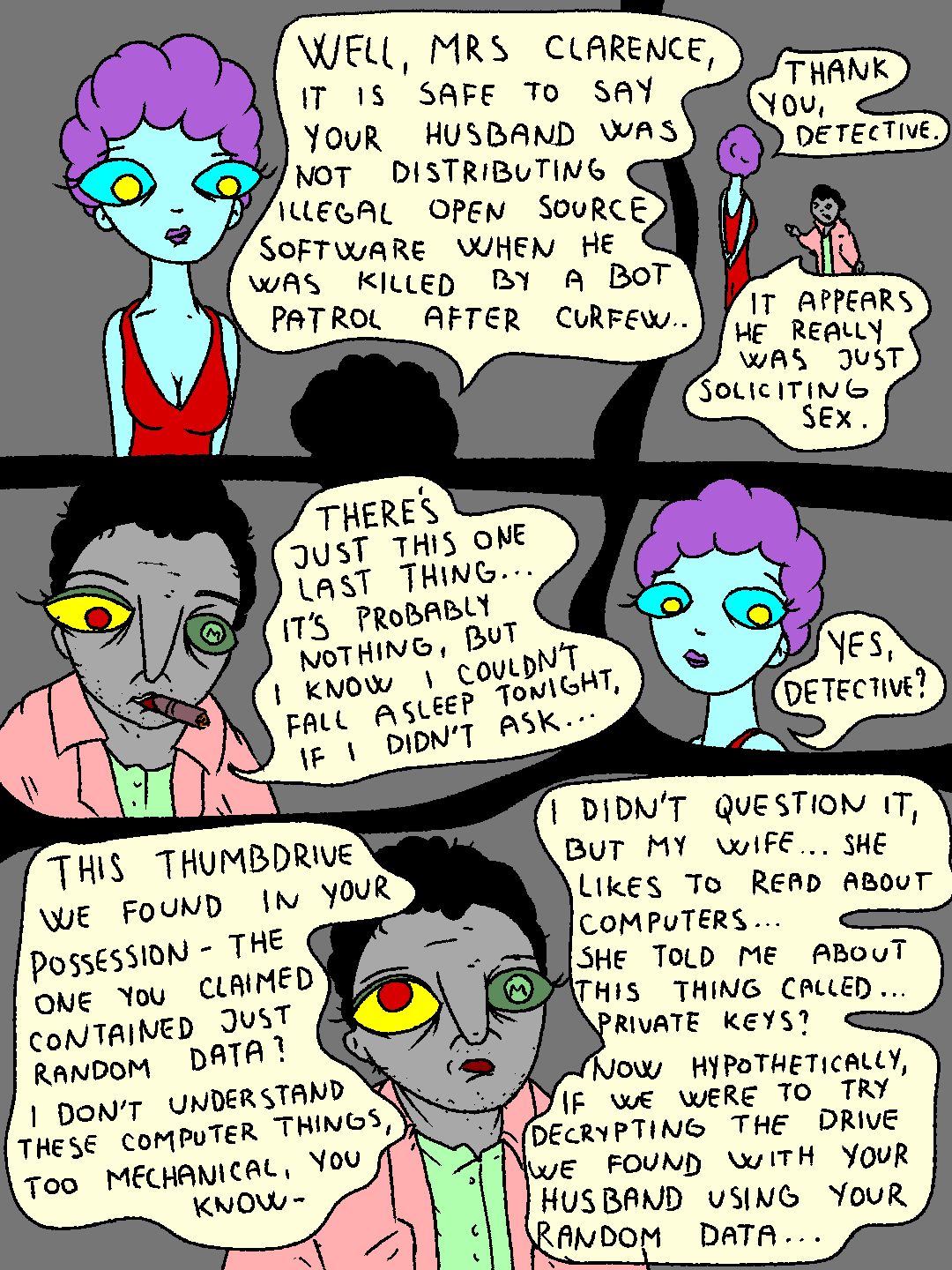original
What LLMs do to software freedom
Previously: "LLM Coding is a Scam"
This new message explains how the LLM hype frenzy impacts software freedom:
On 7/16/25 13:30, Jean Louis wrote:What you call "AI" is just new technology powered with knowledge that gives us good outcomes, it is new computing age, and not "intelligent" by any means. It is just computer and software. So let's not give it too much of the importance.There is no knowledge involved, just statistical probabilities in those "plausible sentence generators" or "stochastical parrots". Thus we see daily the catastrophic failure of these systems in regards to factual output. More money just make them more expensive. More electricity just makes them more polluting. LLMs have peaked, technologically, but the investment bubble still grows. It relates to software freedom in that these parrots strip freedom-preserving attribution and licensing information from the code snippets which they regurgitate.
AI (using today's definitions) is good at recombining pieces, once the pieces are identified. So it can be useful right now in areas like protein folding, I would expect. However, as far as producing code, it can't. All it can do in that regard is strip licensing and attribution from existing code and mix the pieces until something compiles. As pointed out earlier in the thread, that reduces productivity. Programmers using LLMs may /fee/ that they are 24% more effective, but the data actually shows a 19% drop in productivity. It is the stripping of licensing and attribution which may be a greater harm than the reduced productivity, from a software freedom perspective. Indeed, it is the licensing, specifically copyleft, which ensures the freedom to code going forward. Once that is stripped from the files, the freedom is gone.
Furthermore, the LLMs are being used to take away agency from coders, turning them into, as Cory Doctorow put it, reverse centaurs which have already been mentioned in an earlier message:
That situation is antithetical to the goals of software freedom, which is the goal for the human to be in charge of the system and use it as a tool to amplify his or her ability.
"A centaur is someone whose work is supercharged by automation: you are a human head atop the tireless body of a machine that lets you get more done than you could ever do on your own."
"A reverse-centaur is someone who is harnessed to the machine, reduced to a mere peripheral for a cruelly tireless robotic overlord that directs you to do the work that it can’t, at a robotic pace, until your body and mind are smashed."
https://doctorow.medium.com/https-pluralistic-net-2024-08-02-despotism-on-demand-virtual-whips-4919c7e3d2bc
See also:
"Revenge of the Chickenized Reverse-Centaurs"
https://pluralistic.net/2022/04/17/revenge-of-the-chickenized-reverse-centaurs/
The people maneuvering to take away freedom and agency from the public are working hard in the press to present "AI" as a done deal. It is not, at least not as long as those working towards software freedom remain able to continue to push back. These LLMs are enjoying an extended overtime investment bubble which I posit will leave nothing useful when it does finally burst.
But as for Akira's question at the start of the thread, is AI-generated code changing free software? Since the LLMs strip both attribution and licensing information, I would say yes, AI generated code is changing free software by stripping away the freedom while simultaneously detaching the code from the upstream projects it has been plagiarized from. In that way it separates people from the free software projects they could be working with.
Tux Machines boycotts sites that use LLMs. It's not for us. █

